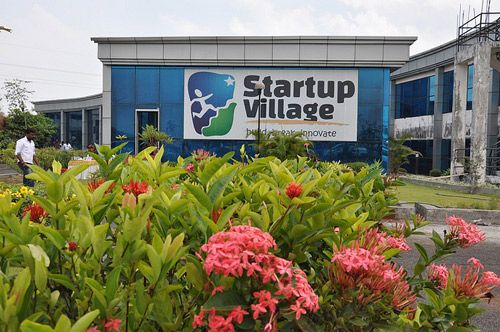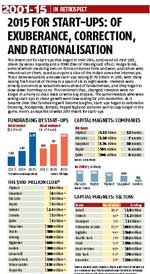 Start-ups in 2015 began to rationalise (Housing, Foodpanda, Zomato, PepperTap) and conserve cash to stay longer in the game.
Start-ups in 2015 began to rationalise (Housing, Foodpanda, Zomato, PepperTap) and conserve cash to stay longer in the game.
The dream run for start-ups that began in mid-2014, continued till mid-2015, driven by excess liquidity and a fear of missing out effect.
Hedge funds, some of whom made big bets on Chinese internet firms and won, and others who missed out on them, raced to acquire a slice of the Indian consumer internet pie.
These drove valuations and saw start-ups raising $5.70 billion in 2015, with many raising fresh rounds of money in a span of six to eight weeks.
Investors were already concerned as valuations were ahead of fundamentals, and they began to slow down from May-June.
The sentiment thus, changed: Investors were no longer in a hurry to close deals or write big cheques.
The same investors who were asking start-ups to chase growth were now asking for unit economics.
As it became clear that fundraising will become tougher, start-ups began to rationalise (Housing, Foodpanda, Zomato, PepperTap) and conserve cash to stay longer in the game.
Here's a snapshot of what 2015 meant for start-ups.











